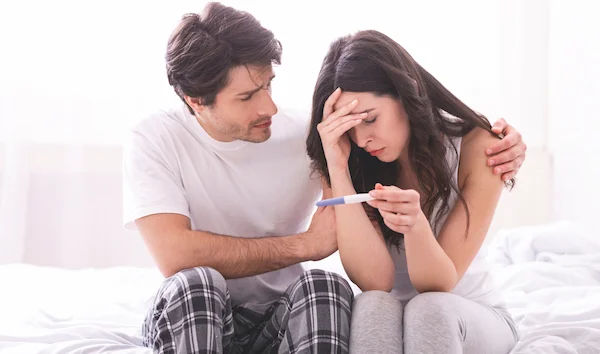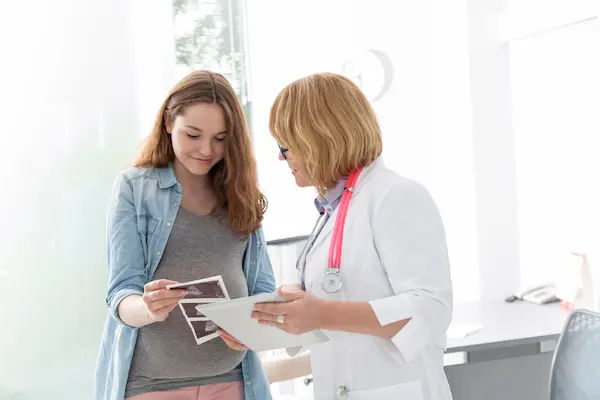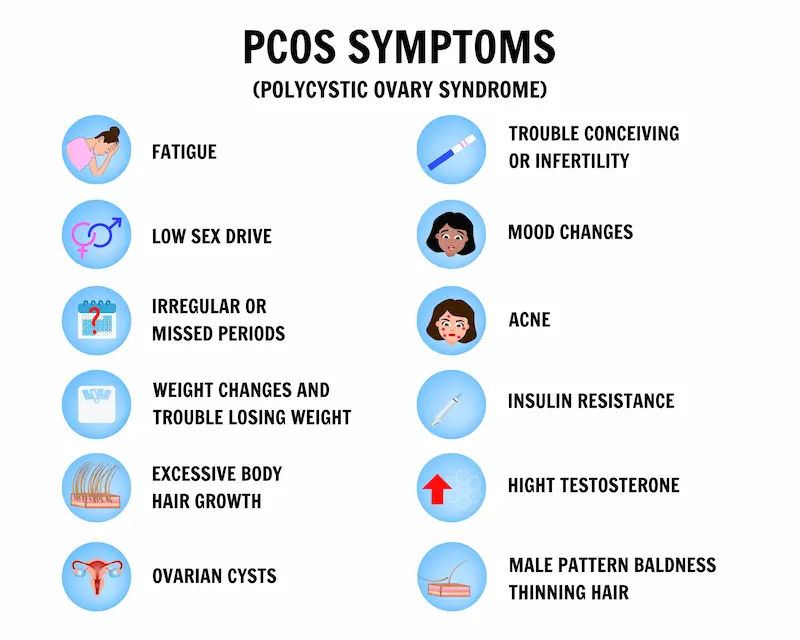Fertility and Age: Planning for Parenthood
Understand how age affects fertility, explore challenges in conception, and learn strategies to plan your path to parenthood effectively.

Written by Dr. Siri Nallapu
Reviewed by Dr. Shaik Abdul Kalam MD (Physician)
Last updated on 13th Jan, 2026
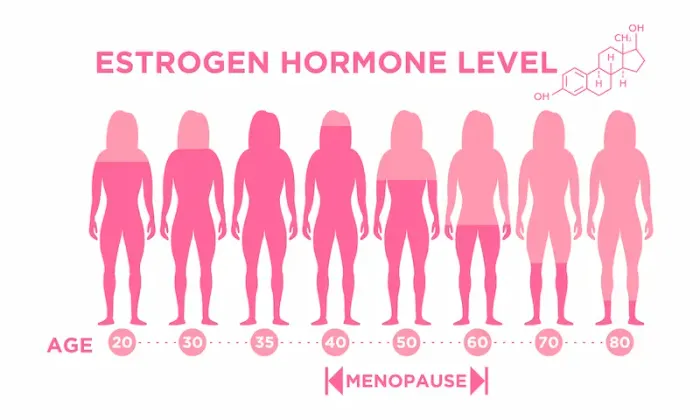
Introduction
Navigating the journey to parenthood is deeply personal, but one factor consistently plays a leading role: age. Whether you're planning to start a family soon or are simply thinking about the future, understanding the relationship between age and fertility is crucial for making informed decisions. This guide isn't meant to cause anxiety but to empower you with knowledge. We'll demystify the "biological clock," explore the science behind fertility decline for both women and men, and outline the practical steps you can take, from assessments to lifestyle changes, to proactively manage your reproductive health. Remember, knowledge is power, and understanding your body's timeline is the first step toward creating the future you envision. If you have specific concerns about your fertility journey, consulting a doctor online with Apollo24|7 can provide personalised guidance from the comfort of your home.
The Biological Clock: Understanding the Female Fertility Timeline
A woman is born with all the eggs she will ever have, about one to two million at birth. This number dwindles throughout her life. This natural decline is what we often refer to as the "biological clock." While every individual is unique, fertility generally follows a predictable pattern based on age-related changes in egg quantity and quality.
Peak Fertility in Your 20s
For most women, the 20s are the peak years for fertility. During this decade, you have the highest number of healthy, high-quality eggs. The chances of conceiving in any given menstrual cycle are at their highest, and the risk of miscarriage or chromosomal conditions is at its lowest. This is the period of optimal reproductive potential.
The Gradual Shift: Fertility in Your Early 30s
The decline begins to accelerate subtly around age 32. While many women conceive naturally and without issue in their early 30s, it might take slightly longer than it would have in their 20s. The quantity and quality of eggs continue to decrease, leading to a gradual reduction in fertility levels.
A Notable Decline: Fertility After 35
Age 35 is often cited as a significant milestone in reproductive medicine. After this point, the rate of follicle loss accelerates further. The American Society for Reproductive Medicine (ASRM) notes that fertility declines more rapidly now. By age 40, a woman's chance of conceiving naturally is less than 10% per cycle. This stage also sees a rise in the risk of miscarriage and chromosomal abnormalities due to the higher proportion of older eggs.
Perimenopause and the End of Natural Conception
Perimenopause, the transition period before menopause can begin in a woman's 40s. Ovulation becomes irregular, and periods may be unpredictable. Natural conception becomes increasingly difficult, and eventually, menopause (marked by 12 consecutive months without a period) signifies the end of natural fertility.
Consult a Reproductive Endocrinologist for the best advice
More Than Just a Number: Why Fertility Declines with Age
Understanding the "why" behind the fertility timeline can help contextualise the statistics. The decline isn't arbitrary; it's rooted in specific biological processes.
The Decline in Egg Quantity (Ovarian Reserve)
A woman's ovarian reserve is the term used to describe the number and quality of eggs in her ovaries. This reserve depletes naturally from birth until menopause. Unlike men who produce new sperm throughout their lives, women cannot produce new eggs. This finite supply is a key reason for age-related infertility.
The Crucial Factor of Egg Quality
Perhaps even more important than quantity is egg quality. As eggs age, they are more prone to genetic abnormalities. A lower-quality egg may not fertilise properly, or if it does, it may not implant in the uterus, or it may lead to a miscarriage. This decline in quality is a primary reason for the increased difficulty in conceiving and carrying a pregnancy to term as women get older.
Increased Risk of Chromosomal Abnormalities
The risk of having a child with a chromosomal condition, such as Down syndrome, increases with maternal age. This is directly linked to the ageing process of the eggs. Older eggs are more likely to have errors in chromosome division during fertilisation.
Health Conditions and Age
As we age, we may be more likely to develop health conditions that can impact fertility, such as endometriosis, uterine fibroids, or tubal disease. These conditions can affect the function of the reproductive organs, creating additional challenges for conception.
What About Men? Male Fertility and Ageing
While the focus is often on women, male fertility over 40 is also a relevant factor. Men do not experience a sudden drop in fertility like women do, but a gradual decline begins around age 40. Sperm quality, including motility (movement) and morphology (shape), can decrease. There is also an increased risk of genetic mutations in sperm with advanced paternal age, which can slightly elevate the risk of certain conditions in offspring. For couples facing conception challenges, a male fertility evaluation is a critical step.
Taking Control: Fertility Assessments and Testing
If you are curious about your reproductive health, especially if you are over 35, proactive testing can provide valuable insights. Fertility testing offers a snapshot of your current status.
Ovarian Reserve Testing (ORT)
These are a series of tests that help estimate your remaining egg supply. They include:
• Blood tests for FSH and Estradiol: Measured on day 3 of your cycle.
• Anti-Müllerian Hormone (AMH) test: This can be done on any day of your cycle and is a strong indicator of ovarian reserve. AMH levels naturally decrease with age.
• Antral Follicle Count (AFC): An ultrasound scan to count the small, resting follicles in your ovaries.
Apollo24|7 offers convenient home collection for tests like AMH, providing a hassle-free way to gather important health data.
Assessing Overall Reproductive Health
A full assessment would also include a physical exam, a discussion of your cycle history, and potentially tests to check for ovulation and the health of your uterus and fallopian tubes (via a hysterosalpingogram or HSG).
Get Your Health Assessed
Lifestyle Factors That Influence Age-Related Fertility
While you can't stop the clock, you can influence your reproductive health through lifestyle choices. These factors can help improve egg quality and create a healthier environment for conception.
• Maintain a Healthy Weight: Being significantly underweight or overweight can disrupt hormone levels and ovulation.
• Eat a Balanced Diet: A diet rich in antioxidants, vitamins, and minerals supports cellular health.
• Avoid Toxins: Smoking accelerates egg loss and damages reproductive DNA. Excessive alcohol and caffeine can also negatively impact fertility.
• Manage Stress: Chronic stress can interfere with the hormones needed for ovulation.
Conclusion
Understanding the guide to age fertility is not about creating pressure, but about fostering empowerment. Age is the single most significant factor influencing a woman's ability to conceive, but it's not the only one. By comprehending your body's natural timeline, you can make proactive choices whether that's starting a family earlier, exploring fertility preservation options like egg freezing, or simply adopting a healthier lifestyle to support your reproductive system. Remember, your journey is unique. If you have concerns or questions, especially if you are over 35, seeking guidance early is always a prudent step. Consult a doctor online with Apollo24|7 to discuss your personal health profile and create a plan that aligns with your life goals. Taking charge of your fertility health today is an investment in your future family.
Consult a Reproductive Endocrinologist for the best advice
Consult a Reproductive Endocrinologist for the best advice
Dr. Arpita Jain Garg
Obstetrician and Gynaecologist
3 Years • MBBS, DNB (Obstetrics & Gynaecology), PGDHHM
Ahmedabad
MH AHMEDABAD, Ahmedabad

Dr. Sanjan Das
Obstetrician and Gynaecologist
15 Years • MBBS,MS
Bengaluru
Apollo Clinic, Sarjapur Road, Bengaluru
Dr Sumanth R
General Physician
2 Years • MBBS
Bengaluru
PRESTIGE SHANTHINIKETAN - SOCIETY CLINIC, Bengaluru
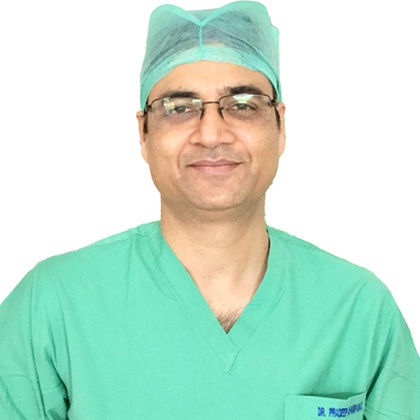
Dr. Pradeep Champawat
Urologist
10 Years • MBBS, MS, DNB Urology
Delhi
Apollo Hospitals Indraprastha, Delhi
(175+ Patients)
Dr. Sasikamalam
General Practitioner
1 Years • MBBS
COIMBATORE
Apollo Sugar Clinic Coimbatore, COIMBATORE
Consult a Reproductive Endocrinologist for the best advice
Dr. Arpita Jain Garg
Obstetrician and Gynaecologist
3 Years • MBBS, DNB (Obstetrics & Gynaecology), PGDHHM
Ahmedabad
MH AHMEDABAD, Ahmedabad

Dr. Sanjan Das
Obstetrician and Gynaecologist
15 Years • MBBS,MS
Bengaluru
Apollo Clinic, Sarjapur Road, Bengaluru
Dr Sumanth R
General Physician
2 Years • MBBS
Bengaluru
PRESTIGE SHANTHINIKETAN - SOCIETY CLINIC, Bengaluru

Dr. Pradeep Champawat
Urologist
10 Years • MBBS, MS, DNB Urology
Delhi
Apollo Hospitals Indraprastha, Delhi
(175+ Patients)
Dr. Sasikamalam
General Practitioner
1 Years • MBBS
COIMBATORE
Apollo Sugar Clinic Coimbatore, COIMBATORE
More articles from Infertility
Frequently Asked Questions
1. What is the best age to get pregnant?
Biologically, the best age for pregnancy is typically a woman's late teens to late 20s, when fertility is at its peak. However, the 'best' age is highly personal and depends on emotional readiness, financial stability, and relationship status. Many women have healthy pregnancies well into their 30s and 40s.
2. Can you improve egg quality after 35?
While you cannot reverse the natural ageing of eggs, you can create a healthier environment for them. Focusing on a nutrient-rich diet (high in antioxidants like vitamins C and E), maintaining a healthy weight, not smoking, and managing stress can support overall egg health and improve the chances of conception.
3. When should I see a doctor about fertility concerns?
It's recommended to see a doctor if you are under 35 and have been trying to conceive for a year without success, or if you are over 35 and have been trying for six months. If you have irregular periods, known reproductive health issues, or a history of miscarriages, consult a doctor sooner.
4. What are the success rates of IVF for women over 40?
IVF success rates decline with age. For women using their own eggs, the live birth rate per cycle is significantly lower after 40 compared to younger women. However, many women in this age group achieve success using donor eggs, which have a much higher success rate as they come from a younger donor.
5. Is egg freezing a guaranteed way to preserve fertility?
Egg freezing is a powerful tool for fertility preservation, but it is not a 100% guarantee. The success of a future pregnancy depends on the age and quality of the eggs at the time of freezing, the number of eggs frozen, and the success of the thawing and IVF process later. It's best considered as an insurance policy that improves your odds.

